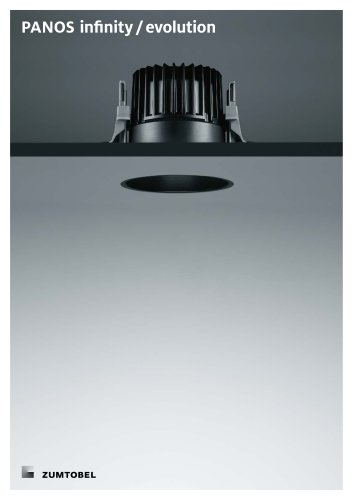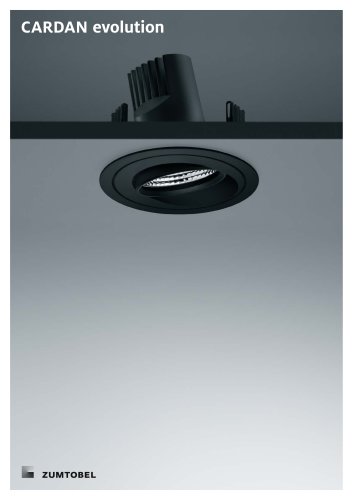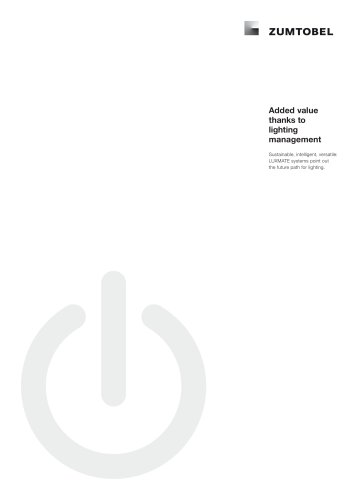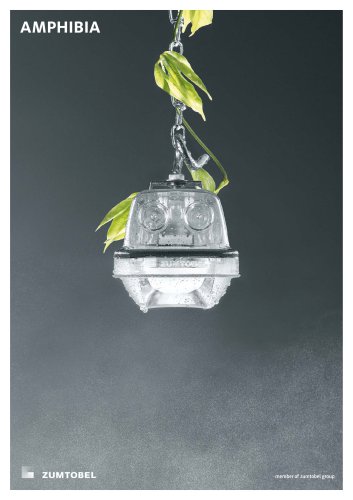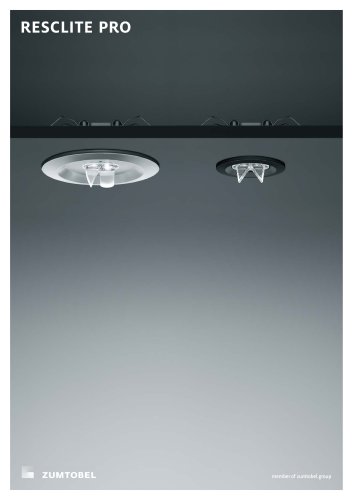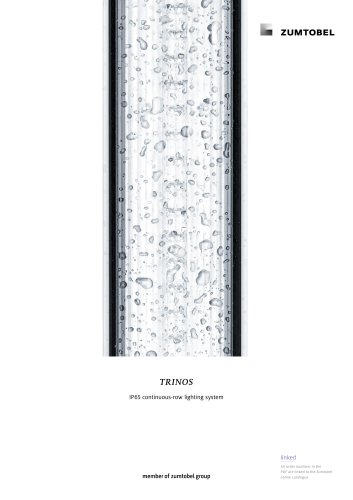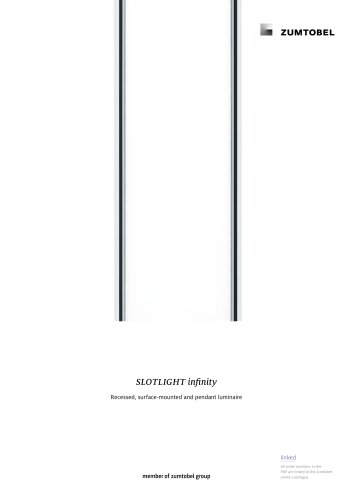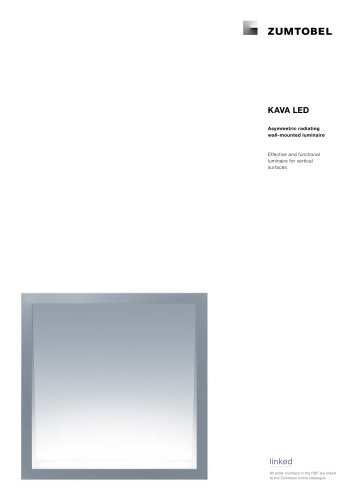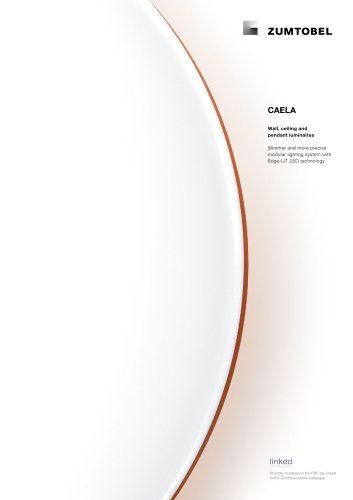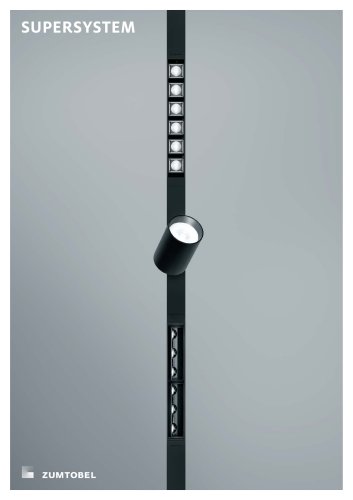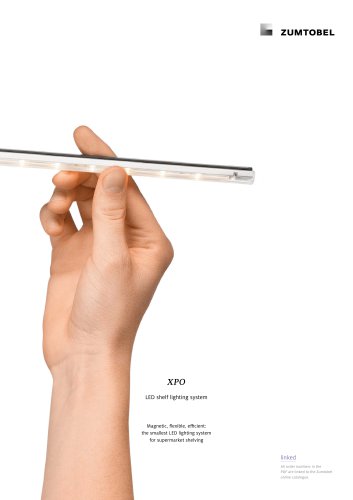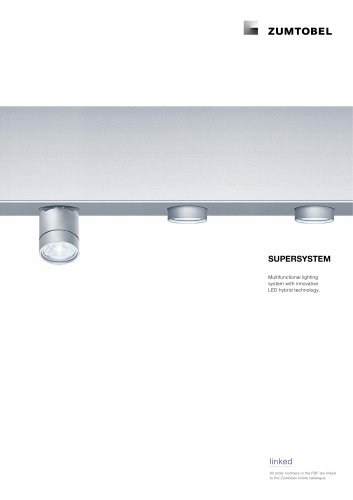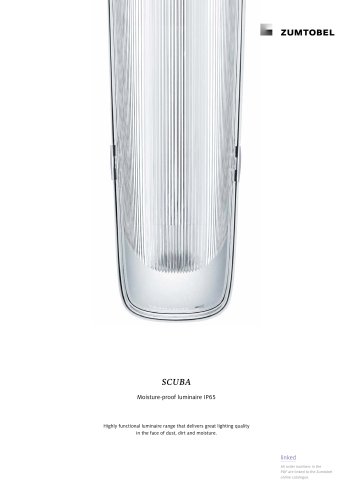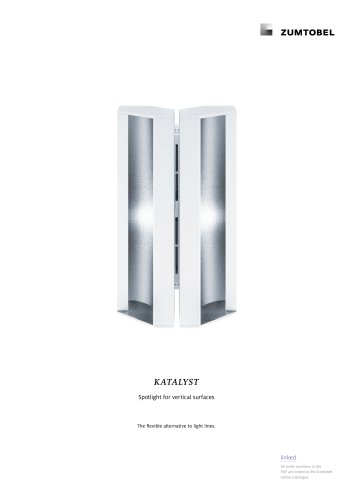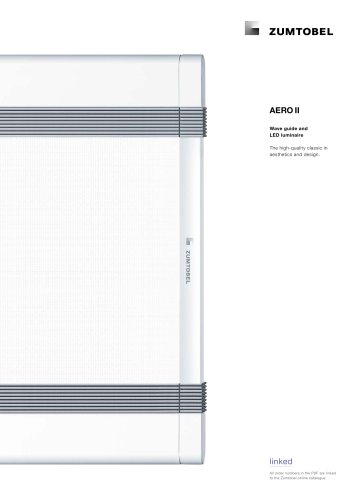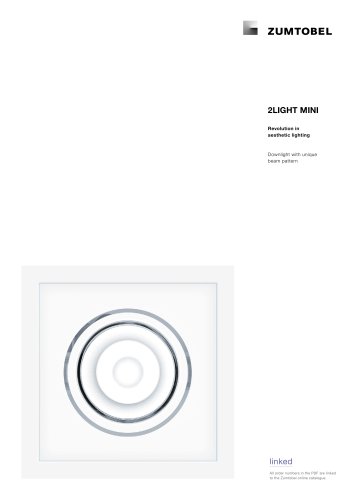Catalog excerpts
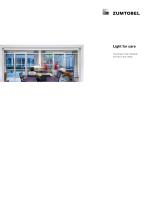
ZUMTOBEL Light for care Focusing on the individual and his or her needs.
Open the catalog to page 1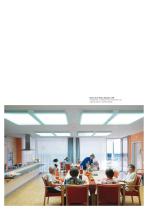
Helios Care Home Goldach | CH Architecture: F. Bereuter AG, Rorschach | CH Lighting solution: special design
Open the catalog to page 2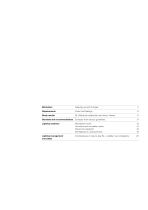
Motivation Keeping up with changes 4 Study results St. Katharina residential care home, Vienna 8 Standard and recommendations Excerpts from various guidelines 11 Lighting solutions Recreation rooms 12 Corridors and circulation areas 14 Workplaces in nursing homes 18 Lighting management Inconspicuous in day-to-day life - reliable in an emergency 20
Open the catalog to page 3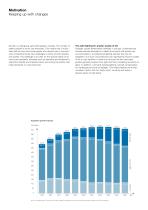
Motivation Keeping up with changes Society is undergoing rapid demographic change. The number of elderly people is set to rise inexorably. This means that in future there will be more and more people who require care. Long-term care is therefore facing new challenges in terms of both quantity and quality. The challenge is to cater for the special needs of all care home residents. Illnesses such as dementia and Alzheimer’s, restricted mobility and impaired vision are among the factors that make demands on care personnel. The right lighting for greater quality of life Eyesight usually...
Open the catalog to page 4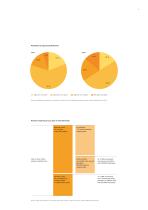
Population by age group (Germany) aged 0 to 19 years aged 20 to 64 years aged 65 to 79 years 80 years and older Source: Demographic development in Germany until 2060, 12th coordinated population forecast. Federal Statistical Office 2009 Persons requiring care, by type of care (Germany) Persons cared for at home: 1.62 million (69%) by relatives: 1.07 million persons needing care jointly with/by out-patient care service providers: 555,000 persons needing care Total of 2.34 million persons needing care Persons cared for as residents in nursing homes: 717,000 million (31%) by 12,000...
Open the catalog to page 5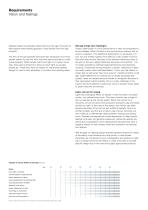
Requirements Vision and feelings Eyesight begins to gradually deteriorate from the age of around 40. Most people need reading glasses to read fluently from this age onwards. The lens of the eye gradually becomes less transparent and most people realise, for the first time, that they need more light in order to see properly. Older people need more light. For a given visual task, they require almost four times as much light as younger people do. These facts have an impact on responsible lighting design for care homes, especially in corridors and meeting areas. Old age brings new challenges...
Open the catalog to page 6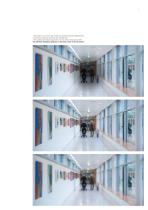
1 Simulation of common age-related eye disease (macular degeneration) 2 Corridor as seen by someone with healthy eyes 3 Simulated age-related impairment of vision (vision reduced by 90%) You will find simulation glasses on the back cover of this brochure
Open the catalog to page 7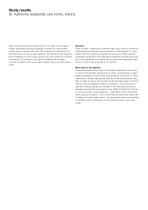
Study results St. Katharina residential care home, Vienna Light provides important timing cues for our body. The circadian system physically and psychologically controls our sleep-wake rhythm over the course of a day. The production of important metabolites drops off as we age: melatonin and serotonin are responsible for keeping our inner clock ticking over. This poses the question of whether it is possible to use light to stabilise the circadian rhythms of persons who need care, thereby improving their quality of life. Question Does a higher, dynamically controlled light input result in...
Open the catalog to page 8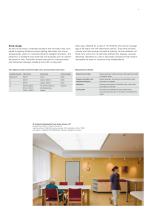
Study design As part of the study, a standard situation and its impact was compared to lighting situations where lighting intensities and colour temperatures varied or mimicked dynamic daylight transitions. The behaviour of residents was observed and analysed over an extended period of time. Particular interest was paid to communication and interaction between residents and with nursing staff. Data was collected for a total of 15 residents who had an average age of 88 years over the observation period. They were primarily women who had received vocational training. All the residents...
Open the catalog to page 9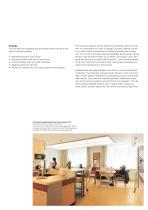
Findings The trial was very revealing and produced positive results in the case of dynamic lighting: • Residents became more active • Residents spent more time in day rooms • Communication with care staff intensified • Sleeping patterns improved • Working conditions for care staff became more pleasant The luminous ceiling in the St. Katharina residential care home was able to compensate for a lack of daylight. Dynamic lighting scenarios in which colour temperature and lighting intensity were varied over the course of the day produced especially good results. During the day, high luminance...
Open the catalog to page 10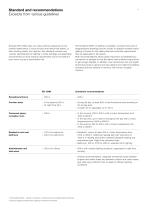
Standard and recommendations Excerpts from various guidelines Standard EN 12464 does not make sufficient allowance for the marked deterioration in visual function that affects the elderly, or their resulting needs. For instance, this standard contains very precise specifications for lighting in office buildings and applicable requirements but more exacting requirements due to the elderly’s poor vision occupy a subordinate role. VDI Guideline 6008¹ on lighting in hospitals, nursing homes and intergenerational dwellings and the Guide² to daylight-oriented interior lighting of homes for the...
Open the catalog to page 11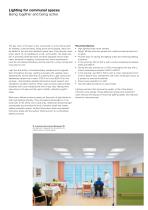
Lighting for communal spaces Being together and being active The day room is the heart of any care facility. It is the central point for meeting, communicating, being active and lounging. Value can be added to the time that residents spend here. They discuss, read, write, watch TV, do needlework or eat, communally. The large number of activities performed here and their disparate nature make heavy demands on lighting. Functional and visual requirements must be met equally effectively and the need for a cosy, homely feel must also be met. Light has the ability to stimulate elderly residents...
Open the catalog to page 12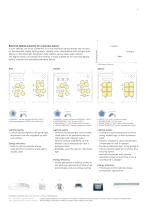
Balanced lighting solutions for communal spaces In care settings, the focus of attention is on the individual; lighting design also focuses on the individual. Higher lighting levels, variable colour temperatures and changes from diffuse to directional light distribution help stabilise natural sleep-wake rhythms. The higher energy consumption this involves is easily justified by the improved lighting quality obtained and associated feel-good factors. LENI energy efficiency Basic Lighting quality – Uniform general lighting with gentle light distribution that also brightens up walls and...
Open the catalog to page 13All ZUMTOBEL catalogs and technical brochures
-
SUPERSYSTEM II
52 Pages
-
ZUMTOBEL SERVICES
44 Pages
-
ARCOS
28 Pages
-
LIGHT FOR CLEANROOMS
6 Pages
-
LIGHT FOR DATA CENTRES
6 Pages
-
CLEAN II industry
12 Pages
-
CLEAN II supreme
16 Pages
-
EMERGENCY PORTFOLIO
88 Pages
-
TUBILUX
6 Pages
-
LINELIGHT
6 Pages
-
LIGHT FIELDS III
28 Pages
-
LINETIK
18 Pages
-
LITECOM
62 Pages
-
MICROS
16 Pages
-
MIREL evolution
32 Pages
-
ONDARIA
16 Pages
-
PANOS
42 Pages
-
PERLUCE
28 Pages
-
VAERO
20 Pages
-
TECTON
64 Pages
-
CARDAN evolution
16 Pages
-
The Lighting Handbook
244 Pages
-
ECOOS II
24 Pages
-
DIAMO
20 Pages
-
ONLITE
276 Pages
-
Light for Hotels and Wellness
52 Pages
-
AMPHIBIA
26 Pages
-
RESCLITE PRO
26 Pages
-
CLARIS evolution
16 Pages
-
The Light.
40 Pages
-
Light for Health and Care
80 Pages
-
Light for Art and Culture
70 Pages
-
TRINOS
38 Pages
-
SUPERSYSTEM outdoor
22 Pages
-
SLOTLIGHT infinity
46 Pages
-
SCONFINE
24 Pages
-
PASO II
70 Pages
-
MELLOW LIGHT
32 Pages
-
MICROTOOLS
24 Pages
-
LINCOR
24 Pages
-
LINARIA
18 Pages
-
LEDOS
24 Pages
-
KAVA
12 Pages
-
IYON
40 Pages
-
INTRO
52 Pages
-
DISCUS
32 Pages
-
CRAFT
48 Pages
-
CAELA
38 Pages
-
LIGHT FIELDS
40 Pages
-
FACTOR
18 Pages
Archived catalogs
-
SUPERSYSTEM_2020
80 Pages
-
CAPA
32 Pages
-
Light for Hotel and Wellness
52 Pages
-
XPO
16 Pages
-
SUPERSYSTEM
72 Pages
-
SEQUENCE
36 Pages
-
SCUBA
36 Pages
-
NIGHTSIGHT
30 Pages
-
KATALYST
11 Pages
-
HELISSA
20 Pages
-
Light and façades
150 Pages
-
ECOOS
18 Pages
-
CREDOS
11 Pages
-
CHIARO
24 Pages
-
AXON
9 Pages
-
AERO II
22 Pages
-
2LIGHT Mini
12 Pages




















